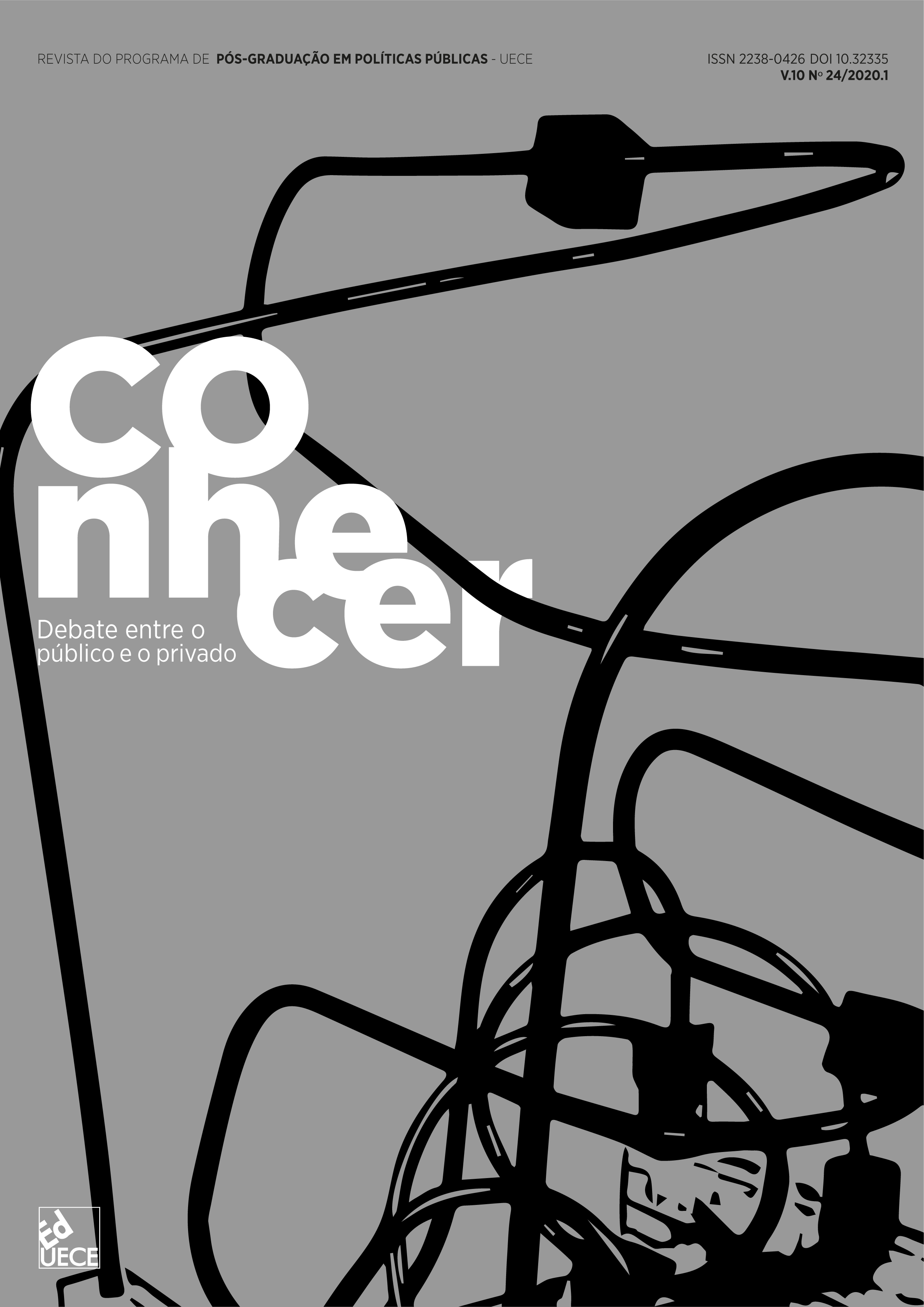Para una historia global del populismo:
rupturas y continuidades
DOI:
https://doi.org/10.32335/2238-0426.2020.10.24.2759Keywords:
populism, totalitarianism, fascismAbstract
The historical globality of populism seems to be a paradox, because it is precisely those nationalist and populist
ideologues who accuse their enemies of “globalists”, and who also present themselves as young actors, without
historical background, or even as the result of a new chapter in the history of the world, which the current
leader of the White House has called “the Trump era.” In theory, the new populists are extremist nationalists
who claim to want to put their countries above all else. In practice, these nationalists form a new international
right, both for their works and for their similarities. None of this is new in the history of populism. This text
analyzes the history of this continuity and indicates its ruptures.
Downloads
References
Albanese, M., & Del Hierro, P. (2016). Transnational fascism in the twentieth century: Spain, Italy and the global neo-fascist network. London, England: Bloomsbury.
Arato, A. (2016). Post sovereign constitution making: learning and legitimacy. Oxford, England: Oxford University Press.
Ávila, L. H. (2016). Anticommunism, the extreme right, and the politics of enmity in Argentina, Colombia, And Mexico, 1946-1972 (Ph.D Thesis). The New School for Social Research, New York, NY.Berezin, M. (2019). Populism and fascism: are they useful categories for comparative sociological analysis? Annual Review of Sociology, 45.
Chávez, H. (2005, 1 de febrero). Conferencia de Prensa del Comandante Presidente Hugo Chávez Frías. Recuperado de http://www.todochavez.gob.ve/todochavez/3594-conferencia-de-prensa-del--comandante-presidente-hugo-chavez-frias
Clinton, M. (2017). Revolutionary nativism: fascism and culture in China, 1925-1937. Durham, NC: Duke University Press.
Cuzzi, M. (2005). L’internazionale delle camicie nere: i CAUR, Comitati d’azione per l’universalità di Roma, 1933-1939. Milan, Italia: Mursia.
De La Torre, C. (2017a). Hugo Chávez and the diffusion of Bolivarianism. Democratization, 24(7), 1271-1288.
De la Torre, C. (2017b). A populist international? ALBA’s democratic and autocratic promotion. SAIS Review of International Affairs, 37(1), 83-93.
De la Torre, C. (2017c). Populismos. Barcelona, España: Tibidabo.
De la Torre, C. (Ed.). (2018). Routledge handbook on global populism. London, England: Routledge.
Finchelstein, F. (2010). Transatlantic fascism. Durham, NC: Duke University Press.
Finchelstein, F. (2014). The ideological origins of the dirty war. Fascism, populism, and dictatorship in twentieth century Argentina. Oxford, England: Oxford University Press.
Finchelstein, F. (2017). From fascism to populism in history. Oakland, CA: University of California Press.
Finchelstein, F., & Urbinati, N. (2018). On populism and democracy. Populism, 1, 1-23.
Gearan, A., & Kim, S. M. (2019, September 24). Trump condemns globalism, touts nationalistic view of foreign affairs at U.N. Recuperado de https://www.washingtonpost.com/politics/trump-touts-nationalistic-view-of-foreign-affairs-at-un/2019/09/24/e4a8486a-ded2-11e9-8fd3-d943b4ed57e0_story.html
Griffin, R. (2017). Interregnum or endgame? The radical right in the ‘post-fascist’ era. In C. Mudde (Ed.), The populist radical right. London, England: Routledge.
Herren, M. (2016). Fascist internationalism. In G. Sluga, & P. Clavin (Eds.), Internationalisms: a twentieth-century history (pp. 191-212). Cambridge, England: Cambridge University Press.
Hofmann, R. (2015). The fascist effect: Japan and Italy, 1915-1952. Ithaca, NY: Cornell University Press.
Ledeen, M. (1972). Universal fascism: the theory and practice of the fascist international, 1928-1936. New York, NY: H. Fertig.
Mammone, A. (2015). Transnational neofascism in France and Italy. Cambridge, England: Cambridge University Press.
Mammone, A. (2018, March 13). Why the European Union must respond to the Italian election. Recuperado de https://www.washingtonpost.com/news/made-by-history/wp/2018/03/13/why-the--european-union-must-respond-to-the-italian-election/McDonnell, D., & Werner, A. (2019). International populism. The radical right in the European Parliament. London, England: Hurst.
Moffitt, B. (2016). The global rise of populism: performance, political style, and representation. Palo Alto, CA: Stanford University Press.
Mudde, C., & Kaltwasser, C. R. (2017). Populism: a very short introduction. Oxford, England: Oxford University Press.
Müller, J. W. (2016). What is populism? Philadelphia, PA: University of Pennsylvania Press.
Patel, K. K., & Reichardt, S. (2016). The dark side of transnationalism social engineering and Nazism, 1930s-40s. Journal of Contemporary History, 51(1), 3-21.
Perón, J. D. (1946). El pueblo ya sabe de qué se trata. Buenos Aires, Argentina: [s.n.].
Perón, J. D. (1951). Artículos de Descartes. Buenos Aires, Argentina: [s.n.].
Perón, J. D. (1976). Yo, Juan Domingo Perón. Barcelona, España: Planeta.
Perón, J. D. (2001). Memorial de puerta de hierro. Buenos Aires, Argentina: Honorable Congreso de la Nación.
Perón, J. D. (2016). Discurso ante una delegación universitaria brasileña. In Autor, Obras completas (Vol. 2). Buenos Aires, Argentina: Biblioteca del Congreso de la Nación.
Sabatini, D. (1997). L’internazionale di Mussolini: la diffusione del fascismo in Europa nel progetto politico di Asvero Gravelli. Roma, Italia: Tusculum.
Semán, E. (2017). Ambassadors of the working class. Durham, NC: Duke University Press.
Stanley, J. (2018) “Bannon’s Deviant ‘Badge of Honor’” New York Times, March 13Urbinati, N. (2019). Me the people: how populism transforms democracy. Cambridge, England: Harvard University Press.
Zachariah, B. (2014). A voluntary Gleichschaltung? Indian perspectives towards a non-eurocentric understanding of fascism. Transcultural Studies, 2, 63-100.
Zanatta, L. (2013). La internacional justicialista. Buenos Aires, Argentina: Sudamericana.
Downloads
Published
How to Cite
Issue
Section
License
Authors who publish in this journal agree with the following terms:
- Authors retain the copyright and grant the journal the right of first publication, and the study is simultaneously licensed under the Creative Commons Attribution License, which allows sharing the study by acknowledging authorship and initial publication in this journal.



